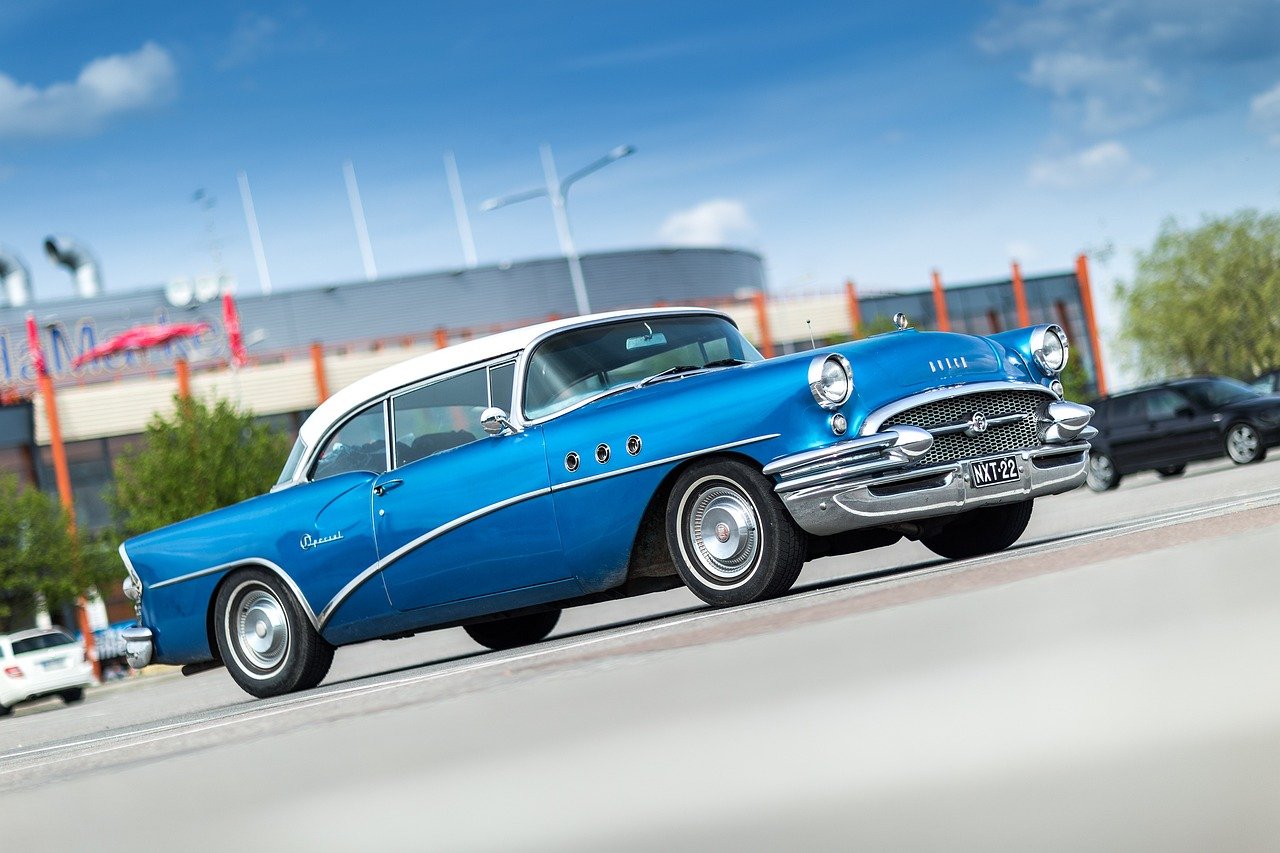If you’re looking to make some extra cash by flipping cars, you’re in luck! In this article, we will explore the most profitable car flipping strategies that can help you maximize your profits and minimize your risks. From finding the best deals to effective marketing tactics, we will guide you through the ins and outs of this lucrative venture. So put on your seatbelt and get ready to accelerate your earnings with these expert tips and tricks!
Finding Undervalued Cars
When it comes to flipping cars for profit, one of the most important steps is finding undervalued vehicles. By identifying cars that have not yet reached their full market potential, you can maximize your chances of making a lucrative sale. The first step in finding undervalued cars is to research popular car models. Look for models that have a high demand in the market but are still affordable and abundant. This will ensure that there is a ready market for the cars you flip.
Once you have identified popular car models, the next step is to understand market trends. Keep an eye on factors such as consumer preferences, changes in technology, and government regulations that can impact the value of specific car models. By staying informed about current market trends, you can predict which cars are likely to increase in value and focus your efforts on acquiring those vehicles.
Another important aspect of finding undervalued cars is evaluating their condition and maintenance history. Look for vehicles that are in good overall condition and have been well-maintained. Cars with extensive repair histories or hidden damages may not be worth the investment. Consider hiring a professional mechanic to inspect the cars you are interested in before making a purchase. This will help you avoid costly surprises down the line and ensure that you are acquiring vehicles with good resale potential.
Buying at Auctions
Auctions can be a goldmine for car flippers looking to find undervalued vehicles. However, to be successful at buying cars at auctions, it’s crucial to do your research beforehand. Start by researching different auction houses in your area and online platforms that specialize in car auctions. Look for reputable sources that have a track record of selling quality vehicles.
Setting a budget is another essential step when it comes to buying cars at auctions. Determine the maximum amount you are willing to spend on a vehicle, including any repairs or upgrades that may be necessary. Stick to your budget to ensure that you do not overspend and eat into your potential profits.
When attending an auction, it’s important to inspect the cars thoroughly before placing a bid. Take the time to carefully examine the exterior and interior of the vehicles, paying attention to any signs of damage or neglect. If possible, start the engine and take the car for a test drive to assess its performance. Don’t be afraid to ask questions and request maintenance records or vehicle history reports to get a comprehensive understanding of the car’s condition.
Negotiating the Deal
Once you have found an undervalued car and are ready to make a purchase, effectively negotiating the deal can make a significant difference in your profit margins. Understanding the seller’s motivation is a crucial aspect of negotiation. Sellers may be motivated to sell quickly due to financial constraints or other personal circumstances. By recognizing their motivations, you can tailor your negotiations to offer a win-win solution that appeals to both parties.
Preparing for negotiation also plays a key role in securing a favorable deal. Conduct thorough research to determine the fair market value of the car you are interested in. This will give you a baseline to compare prices and strengthen your negotiating position. Additionally, consider any repairs or upgrades that may be needed and factor these costs into your offer.
Effective communication and persuasion skills are vital when negotiating the deal. Clearly articulate your reasons for your offer and be prepared to justify your proposed price. Finding common ground and building rapport with the seller can also help create a positive negotiation environment. Remember to listen actively and be flexible in finding solutions that benefit both parties.
Implementing Repairs and Upgrades
To maximize the value of the cars you flip, it’s important to implement necessary repairs and cost-effective upgrades. Prioritize repairs that are essential for the car’s safety and performance. Fixing mechanical issues, addressing electrical problems, and ensuring all systems are in working order should be your top priority. A well-maintained and reliable car will always fetch a higher price in the market.
When it comes to upgrades, focus on cost-effective options that will enhance the car’s appeal without breaking the bank. Consider cosmetic improvements such as professional detailing, replacing worn-out upholstery, or upgrading the audio system. These relatively affordable upgrades can significantly improve the overall appearance and desirability of the car, making it easier to sell at a higher price.
Utilizing DIY techniques can also be a great way to save on repair and upgrade costs. If you have the skills and knowledge, consider tackling certain tasks yourself. However, it’s important to be realistic about your abilities and only take on projects that you are confident in completing to a professional standard. Remember that quality workmanship is crucial for maintaining the value of the car.
Marketing and Advertising
Successfully marketing and advertising the cars you flip is essential for attracting potential buyers and maximizing your profits. Utilize online platforms such as classified websites and social media to reach a wide audience. Create high-quality listings that showcase the car’s best features, including clear and well-lit photographs, detailed descriptions, and accurate specifications. Highlight any repairs, upgrades, or unique selling points that set the car apart from others on the market.
In addition to online platforms, be creative with your advertising strategies. Consider traditional print media, local car shows, or even community bulletin boards. These avenues can help you reach a different demographic that may not be actively searching online for cars. Collaboration with local dealerships or mechanics can also be beneficial, as they often have a network of potential buyers and may be willing to promote your cars to their customers.
Pricing for Profit
Determining the right price for your flipped cars can greatly impact your overall profits. Start by estimating the market value of the car based on factors such as its make, model, year, condition, and mileage. Research similar cars currently on the market to get an idea of their asking prices.
Next, determine a competitive price that will attract potential buyers while still allowing room for negotiation. Aim for a price that is slightly higher than the estimated market value, but not so high that it becomes unappealing to buyers. Consider the demand for the particular car model and adjust the price accordingly.
During negotiations, be prepared to defend your price and justify its value. Highlight the repairs, upgrades, and overall condition of the car as selling points that justify the asking price. Be open to negotiation but also know your bottom-line figure to protect your profit margins.
Selling for Profit
Choosing the right sales channel is crucial for selling your flipped cars for a profit. Consider whether selling privately, through a dealership, or through online platforms is the best option for each particular car. Private sales may command higher prices, but they require more effort in terms of advertising, negotiating, and arranging test drives. Selling through a reputable dealership or online platform may offer more convenience but may result in slightly lower selling prices.
Effectively handling inquiries and test drives is key to sealing the deal. Respond promptly to inquiries, provide detailed information about the car, and schedule test drives in a professional and accommodating manner. During test drives, let potential buyers experience the car firsthand and address any questions or concerns they may have. Be transparent about the car’s history and condition to build trust with potential buyers.
When closing the deal, ensure that all necessary paperwork is completed accurately and legally. Transfer ownership and registration documents promptly and communicate clearly regarding payment methods. Provide receipts and warranties if applicable, demonstrating your commitment to customer satisfaction and maintaining a positive reputation within the industry.
Flipping Vintage and Classic Cars
Flipping vintage and classic cars can be a highly lucrative venture for experienced car flippers. Understanding the vintage car market is crucial. Conduct extensive research on the history, rarity, and desirability of vintage and classic car models. Familiarize yourself with current market trends, including shifts in demand and issues related to authenticity and originality.
Finding rare and unique models is the key to success in the vintage car flipping business. Attend vintage car shows, join collector clubs, and network with enthusiasts to discover hidden gems. Keep an eye out for cars that have a documented history, low production numbers, or unique features that add value. It may require patience and persistence, but finding that rare vintage car can result in significant profit margins.
Preserving and restoring original features is essential when dealing with vintage and classic cars. Potential buyers in this market are often looking for authenticity and originality. Avoid over-restoration and aim to maintain the car’s original charm and character. Focus on preserving the car’s unique features and historically accurate components while ensuring that it is safe and roadworthy.

Disposing of Non-Profitable Cars
Not every car you flip will turn out to be profitable. Identifying non-profitable cars early on is important to minimize losses and maximize profits. Factors that may make a car non-profitable include extensive repairs needed, low demand in the market, or a flooded market with similar models available.
Effective disposal methods are essential when dealing with non-profitable cars. Consider selling them for parts, recycling components, or even donating them to charitable organizations. Explore salvage yards or online platforms that specialize in selling parts to recover some of your investment. By cutting your losses and quickly disposing of non-profitable cars, you can allocate your time and resources to more profitable ventures.
Scaling Your Car Flipping Business
Once you have established a successful car flipping business, scaling up is the next logical step. Building a network of reliable suppliers and buyers is crucial for sourcing quality cars and attracting potential customers. Establish relationships with reputable dealerships, mechanics, and auction houses to gain access to a wider variety of cars.
Hiring skilled mechanics and restorers is essential as your business grows. Quality workmanship is vital for maintaining the value and desirability of the cars you flip. Look for experienced professionals who are passionate about cars and have a track record of delivering high-quality work. Assemble a team of experts who can handle repairs, restorations, and upgrades efficiently and effectively.
Optimizing business operations is the final step in scaling your car flipping business. Implement systems and processes that streamline operations, such as inventory management, marketing and advertising strategies, and customer relationship management. Leverage technology to automate repetitive tasks and improve efficiency. Focus on continuously improving your business practices to stay ahead of the competition and maintain consistent profitability.
In conclusion, the most profitable car flipping strategies involve finding undervalued cars, buying smart at auctions, negotiating effectively, implementing necessary repairs and upgrades, and marketing and advertising with precision. By following these strategies, you can maximize your profit potential and build a successful car flipping business. With careful research, attention to detail, and dedication to quality, you can turn your passion for cars into a profitable venture.

